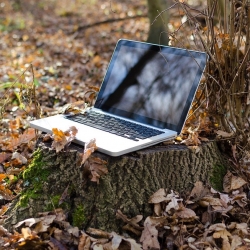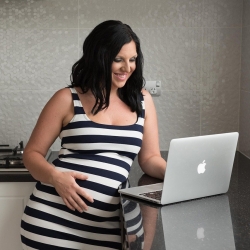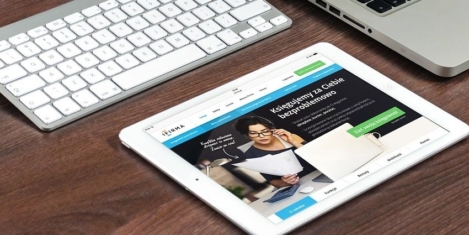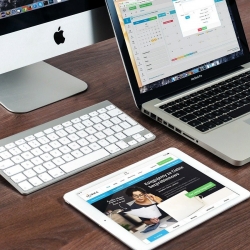March 27, 2020
Search Results for: employee
March 25, 2020
Loneliness has always been a workplace issue
by Nigel Oseland • Comment, Wellbeing, Working lives, Workplace design
 Loneliness is increasingly recognised as a serious issue in modern society. In the UK, the Office of National Statistics reported that 5 percent of adults feel lonely ‘often’ or ‘always’, with further 16 percent of adults reporting feeling lonely ‘sometimes’, equivalent to approximately 9 million adults suffering from loneliness to some degree. (more…)
Loneliness is increasingly recognised as a serious issue in modern society. In the UK, the Office of National Statistics reported that 5 percent of adults feel lonely ‘often’ or ‘always’, with further 16 percent of adults reporting feeling lonely ‘sometimes’, equivalent to approximately 9 million adults suffering from loneliness to some degree. (more…)
March 25, 2020
The good, the bad and the ugly of workplace wellbeing
by Chris Pinner • Comment, Wellbeing
 FTSE companies that prioritise wellbeing and engagement outperform others by 10 percent according to a study from SOMA Analytics. Similar results are apparent across a range of related studies. With such a significant impact, it’s surprising that businesses are still not measuring the impact of wellbeing activities to optimise their offering. (more…)
FTSE companies that prioritise wellbeing and engagement outperform others by 10 percent according to a study from SOMA Analytics. Similar results are apparent across a range of related studies. With such a significant impact, it’s surprising that businesses are still not measuring the impact of wellbeing activities to optimise their offering. (more…)
March 25, 2020
Does remote working mean lack of belonging?
by Jayne Smith • News, Working culture
 New research from Globalization Partners Inc., claims more than 90 percent of employees who work for a global organisation describe their companies as diverse. However, a lack of understanding by the organisations themselves around how to manage this growing disparate and diverse workforce means that three out of ten respondents don’t feel a sense of inclusion or belonging due to remote working. This negatively impacts employee engagement, trust, happiness, as well as staff turnover. (more…)
New research from Globalization Partners Inc., claims more than 90 percent of employees who work for a global organisation describe their companies as diverse. However, a lack of understanding by the organisations themselves around how to manage this growing disparate and diverse workforce means that three out of ten respondents don’t feel a sense of inclusion or belonging due to remote working. This negatively impacts employee engagement, trust, happiness, as well as staff turnover. (more…)
March 20, 2020
How important is it to be happy at work?
by Jayne Smith • News, Wellbeing
 How supportive are you of your employees’ wellbeing? New research from CV-Library claims that two-thirds of Brits (61.7 percent) say being happy at work is the most important part of a job, but 87.9 percent feel their employer could do more to improve morale in the workplace.
How supportive are you of your employees’ wellbeing? New research from CV-Library claims that two-thirds of Brits (61.7 percent) say being happy at work is the most important part of a job, but 87.9 percent feel their employer could do more to improve morale in the workplace.
What’s more, the study, which surveyed 2,300 UK professionals, suggests that Brits think being happy is more important than salary (22.1 percent) and location (15.5 percent) when it comes to work. Interestingly, being happy in their job was also more important for women (66.4 percent) than men (58.7 percent), as well as for 55-64-year olds (66.9 percent) and 45-54-year olds (64.8 percent). (more…)
March 19, 2020
Routine admin tasks hamper collaborative work
by Jayne Smith • News

On average, business and IT decision makers from UK organisations waste 27 percent of their time at work on valueless tasks claims research from Vanson Bourne, commissioned by Dropbox in a report called The State of Collaboration. The study claims that monotonous admin is starving UK businesses of innovation. (more…)
March 18, 2020
The UK`s tech sector continues to thrive
by Neil Franklin • News, Technology
 Britain’s digital sector is growing at six times the pace of the country’s other industries, according to new research from Tech Nation. According to the annual study, technology businesses contributed around £149 billion to the UK economy in 2018, nearly 8 percent of GDP. Since 2017 staff numbers at digital companies have risen by 40 percent to 2.9 million, nearly tenth of the total UK workforce. (more…)
Britain’s digital sector is growing at six times the pace of the country’s other industries, according to new research from Tech Nation. According to the annual study, technology businesses contributed around £149 billion to the UK economy in 2018, nearly 8 percent of GDP. Since 2017 staff numbers at digital companies have risen by 40 percent to 2.9 million, nearly tenth of the total UK workforce. (more…)
March 18, 2020
Job satisfaction could be down to having a diverse team of people with which you work
by Jayne Smith • News, Working culture
 Working in multidisciplinary teams makes work more enjoyable and means that customers receive a better service claims new research from Nyenrode Business University. Dr. Mike Hoogveld conducted a large-scale survey and completed a case study at four major energy suppliers suggesting that agile leadership also leads to greater job satisfaction. (more…)
Working in multidisciplinary teams makes work more enjoyable and means that customers receive a better service claims new research from Nyenrode Business University. Dr. Mike Hoogveld conducted a large-scale survey and completed a case study at four major energy suppliers suggesting that agile leadership also leads to greater job satisfaction. (more…)
March 16, 2020
Workplace transformation decisions shifting from HR to senior management
by Jayne Smith • News, Working culture
Infosys Knowledge Institute (IKI), the thought leadership and research arm of Infosys, have published a global research report titled, ‘Drive Change from Within.’ The research claims that CEOs are now prioritising on driving a workplace transformation roadmap and contributing to its development in the organisation. (more…)
(IKI), the thought leadership and research arm of Infosys, have published a global research report titled, ‘Drive Change from Within.’ The research claims that CEOs are now prioritising on driving a workplace transformation roadmap and contributing to its development in the organisation. (more…)
March 13, 2020
The UK is not well enough prepared for working from home
by Neil Franklin • Flexible working, News
 Figures released today suggest that the UK is one of the least prepared countries to introduce a mass home-working strategy. Leesman has surveyed more than 700,000 employees worldwide. Of the 139,778 UK workers in its index, 55 percent have little or no experience working from home, compared with 52 percent of respondents globally. (more…)
Figures released today suggest that the UK is one of the least prepared countries to introduce a mass home-working strategy. Leesman has surveyed more than 700,000 employees worldwide. Of the 139,778 UK workers in its index, 55 percent have little or no experience working from home, compared with 52 percent of respondents globally. (more…)
March 13, 2020
Digital transformation becomes number one skills issue
by Jayne Smith • News, Technology
 Organisations across Europe are facing a skills challenge caused by digital transformation, with many struggling to keep pace with learning and development (L&D) needs, claims research from Skillsoft. Carried out in the UK, France and Germany, the research suggests that reskilling in the face of changing and increasingly digital working environments is the biggest single issue for L&D professionals across all three countries (42 percent of respondents on average). (more…)
Organisations across Europe are facing a skills challenge caused by digital transformation, with many struggling to keep pace with learning and development (L&D) needs, claims research from Skillsoft. Carried out in the UK, France and Germany, the research suggests that reskilling in the face of changing and increasingly digital working environments is the biggest single issue for L&D professionals across all three countries (42 percent of respondents on average). (more…)






 Research of product popularity and customer click out data by product comparison service,
Research of product popularity and customer click out data by product comparison service, 

















March 26, 2020
Now is a great time to talk about staff absence in the NHS
by Ian Caminsky • Comment, Wellbeing